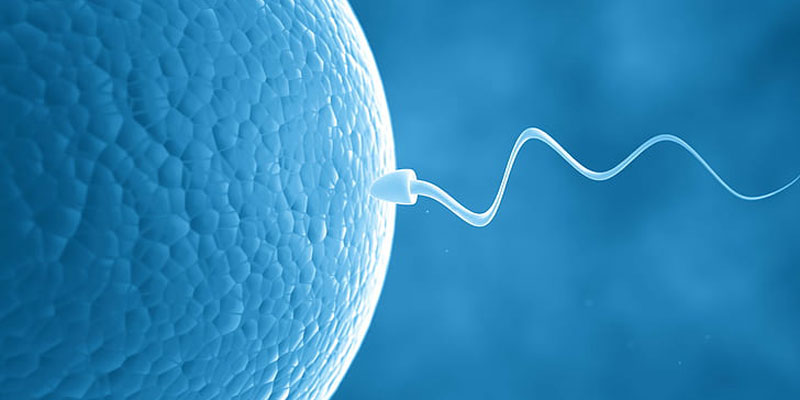
Fertilization is the process of the union of egg and sperm. For successful fertilization by natural means, ovulation and sperm health are of prime importance.
Ovulation
Every month, a group of eggs begin their growth in tiny fluid-filled sacs named follicles. One of the eggs erupts from the follicle. This process is called ovulation and takes place two weeks before the next period.
Once the egg leaves the follicle, it develops into the corpus luteum, a hormone released that helps in the thickening of the uterine lining. The egg moves to the fallopian tube and stays there for 24 hours, waiting for a single sperm to fertilize it. If no sperm is around the fertilized egg, the uterine lining is shed by the body in the form of periods.
Process of Fertilization
During intercourse, the man ejaculates 40 million to 150 million sperms that begin swimming towards the fallopian tubes to fertilize the egg. While fast-swimming sperm reach the egg within half an hour, slow-moving sperm could take days. The sperm may stay for 48-72 hours. Only a few hundred come close to eggs because of the natural barriers present in the woman’s body.
It takes 24 hours for a sperm to fertilize the egg. Once the sperm penetrates the egg, the egg surface changes so that no other sperm can enter it. During fertilization, the genetic makeup is complete, which determines if the baby is a boy or a girl. If the sperm has a Y chromosome, the baby will be a boy, whereas if the sperm has an X chromosome, the baby will be a girl.
The fertilized egg divides into many cells. After 3 to 4 days of fertilization, the fertilized egg moves from the fallopian tubes to the uterus and gets attached to the uterine lining through a process named implantation.
Women may experience slight spotting at the time of implantation. The uterine lining gets thicker, and the cervix is sealed by mucus, which stays intact till the birth of the baby.
Pregnancy Hormones
About a week after fertilization, a hormone named human chorionic gonadotrophin (hCG) is found in the mother’s blood, which is produced by the cells that become the placenta. The placenta provides oxygen and essential nutrients for the growth of the baby. A pregnancy test can be confirmed through the presence of hCG in a blood test or urine test. Some home pregnancy tests can detect the presence of hCG as soon as 7 days after ovulation.
The heart begins beating at around week 5 from fertilization. Eventually, the brain, spinal cord, and other organs start developing. In the eighth week, the developing baby is called a fetus that measures about a half-inch long. A full-term delivery takes place at 40 weeks.
How to Improve Chances of Fertilization
Practice healthy habits like eating a balanced diet and avoiding smoking and alcohol consumption. Men should refrain from hot baths as doing so can affect sperm health.
The best times to have intercourse to get pregnant are:
- On ovulation or 24 hours of ovulation: The egg lives for 24 hours, so it is the best time to have intercourse as the egg may be waiting for sperm to reach.
- Three days before ovulation: During this time, the sperm waits for the egg to travel to the fallopian tube.
Factors that Hinder Fertilization
Certain factors that can be a roadblock to fertilization are as follows:
- Low sperm count and sperm motility issues
- Anovulation is when eggs are not released from the ovaries
- Age that could reduce the amount of quality eggs and quality sperm
- Blockage in ovaries, testicles, or fallopian tubes
Signs of Pregnancy
Some women may notice signs of pregnancy after conception, while others can sense the symptoms a few weeks after fertilization.
The common signs of pregnancy include:
- Missed period
- Nausea
- Sore or swollen breasts
- Headaches
- Mood swings
- Fatigue
- Frequent urination
- Spotting
If you are planning for pregnancy and have been noticing pregnancy signs, confirm them with the expert doctors at Matrix Hospital.
